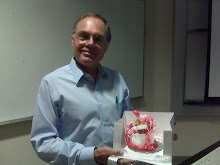Smartphones Vs. Guns
As this MediaNote is being written, Democratic legislators are staging a round-the-clock sit-in on the floor of the House of Representatives. Their purpose is to force the Republican leadership of the House to bring gun control legislation to the floor for a vote. House Speaker Paul Ryan (a Republican) has responded to the sit-in by calling it "a publicity stunt" and ordering the House microphones and C-Span cameras turned off. Democrats responded with continuous live cellphone video streamed to Periscope and Facebook Video. C-Span (a nonpartisan, nonprofit channel that provides unfiltered coverage of the federal government) has responded by playing the live streamed internet feed. The Washington Post and other traditional media have taken up the story. The Republican leadership has responded by suspending the legislative session until July 5.
Questions...
•How would the sit-in have played out differently without participatory media on the Internet? How is the cellphone video an example of "disintermediation"?
•"Agenda Setting" is when the media gets us to think about a topic by giving that topic a lot of coverage? How is this an example of agenda setting? Can new media (internet video, Tweets, etc.) be as effective at agenda setting as old media (TV, newspapers, etc.)?
•How can individuals use the media at their fingertips to support (or oppose) what is going on in the House?
•How can Democrats keep the sit-in going without it fading into the background? Was it a smart tactic for the Republican leadership to adjourn until July 5?
•How can Republicans, the NRA and others use media to get their viewpoint out?
Labels: audience segmentation, disintermediation, getty, internet, smartphones, socialnetworking

